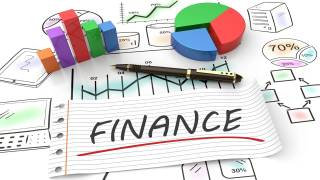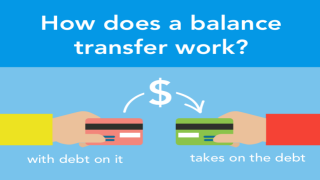Advertisement
Buying a used car can be a rewarding and financially savvy decision for many consumers. Whether you're a first-time car buyer or looking for a budget-friendly alternative, the used car market offers a wide array of options. In this guide, we'll explore the advantages of buying used cars, key considerations, and tips to make a well-informed purchase.
Advantages of Buying Used Cars:
1. Cost Savings:
One of the primary benefits of opting for a used car is cost savings. New cars typically depreciate quickly in the first few years, making used cars more budget-friendly.
With a lower upfront cost, buyers can access a wider range of makes and models than they might have considered if purchasing new.
2. Depreciation Benefits:
New cars experience the most significant depreciation in their first few years. By buying used, you let the previous owner absorb this initial depreciation.
This means that the rate of depreciation is slower, allowing you to retain a higher percentage of the car's value over time.

3. Certified Pre-Owned (CPO) Programs:
Many manufacturers offer certified pre-owned programs, providing buyers with a middle ground between new and used cars.
CPO cars undergo rigorous inspections, come with extended warranties, and often include additional perks, offering peace of mind to buyers.
4. Lower Insurance Costs:
Insurance premiums are generally lower for used cars than for their new counterparts. This contributes to overall cost savings throughout the ownership period.
5. Variety of Options:
The used car market offers a diverse selection of makes, models, and years. Buyers can explore different options to find a car that suits their preferences and needs.
Key Considerations When Buying Used:
1. Budgeting:
Determine a realistic budget for your used car purchase, considering not only the purchase price but also potential maintenance and insurance costs.
Research the market to understand the price range for the specific make and model you are interested in.
2. Vehicle History Report:
Obtain a comprehensive vehicle history report for any used car you are considering. This report provides crucial information about the car's past, including accidents, title issues, and odometer readings.
Services like Carfax or AutoCheck can provide detailed vehicle history reports.

3. Inspection and Test Drive:
Before finalizing a purchase, have the used car inspected by a trusted mechanic. A thorough inspection can uncover potential issues that may not be immediately apparent.
Take the car for a test drive to evaluate its performance, handling, and comfort. Pay attention to any unusual sounds or vibrations.
4. Certified Pre-Owned Options:
Consider certified pre-owned (CPO) programs offered by manufacturers. CPO cars often come with extended warranties and additional benefits, providing added assurance.
5. Research Resale Value:
Investigate the resale value of the specific make and model you are interested in. Cars with higher resale values can be more cost-effective over the long term.
6. Negotiation Skills:
Don't hesitate to negotiate the price with the seller. Research comparable listings and be prepared to make a fair offer based on the market value and condition of the car.
Be open to compromise and find a mutually beneficial agreement.
Tips for a Successful Used Car Purchase:
1. Research, Research, Research:
Take the time to research different makes and models that fit your needs. Consider factors such as fuel efficiency, maintenance costs, and reviews from other owners.
Read consumer reviews and expert opinions to gain insights into the performance and reliability of the cars you're interested in.

2. Consider Certified Pre-Owned Programs:
Explore certified pre-owned options for added peace of mind. CPO cars often undergo thorough inspections, come with extended warranties, and may include additional perks.
3. Have a Trusted Mechanic Inspect the Car:
Before finalizing the purchase, invest in a pre-purchase inspection by a qualified mechanic. This step can uncover potential issues and provide an accurate assessment of the car's condition.
4. Check Vehicle History:
Obtain a vehicle history report to gain insights into the car's past. Look for any red flags such as accidents, title issues, or odometer discrepancies.
5. Test Drive Multiple Cars:
Don't settle for the first car you test drive. Try out multiple options to get a feel for different makes and models. This can help you make a more informed decision based on your preferences.
6. Get Pre-Approved for Financing:
If you plan to finance the purchase, get pre-approved for a loan. This can help streamline the buying process and give you a clear understanding of your budget.
7. Check Resale Value:
Consider the resale value of the car you're interested in. Cars with higher resale values can be a wise investment, offering better returns when you decide to sell or trade in the future.
Conclusion:
Buying a used car can be a smart and cost-effective choice for consumers looking to unlock value without compromising on quality. By conducting thorough research, considering key factors, and following essential tips, buyers can navigate the used car market with confidence. Whether opting for a certified pre-owned vehicle or exploring a diverse range of options, the used car market offers a plethora of choices for individuals seeking reliable transportation without breaking the bank.
Advertisement
Advertisement
- Previous article
- Unraveling the Tax Mysteries of Credit Card Rewards!
- Next article
- Unveiling the Charm of Stardew Valley: A Journey Through its Colorful Characters
Advertisement
OTHER NEWS

Common Types of Homeowner
BY Wendy

Securing and Maintaining High Limit Credit Cards: A Comprehensive Guide!
BY Wendy

Unveiling the Financial Industry
BY Little Grapes

Real Estate Investment Needs to be Careful!
BY Little Grapes

Navigating the Skies: A Guide to Unveiling the Magic of Travel Credit Cards!
BY Wendy

About Balance Transfer Basics!
BY Little Grapes
RECENT NEWS
-

Demystifying Bitcoin
-

Securing and Maintaining High Limit Credit Cards: A Comprehensive Guide!
-

The investment value of men’s watches
-

Guarding Against Credit Card Fraud: What to Do If Your Identity Is Compromised?
-

Strategies for Success in the Watch Industry
-

Understanding Survivorship Life Insurance: Planning for the Future Together!

 1
1 0
0